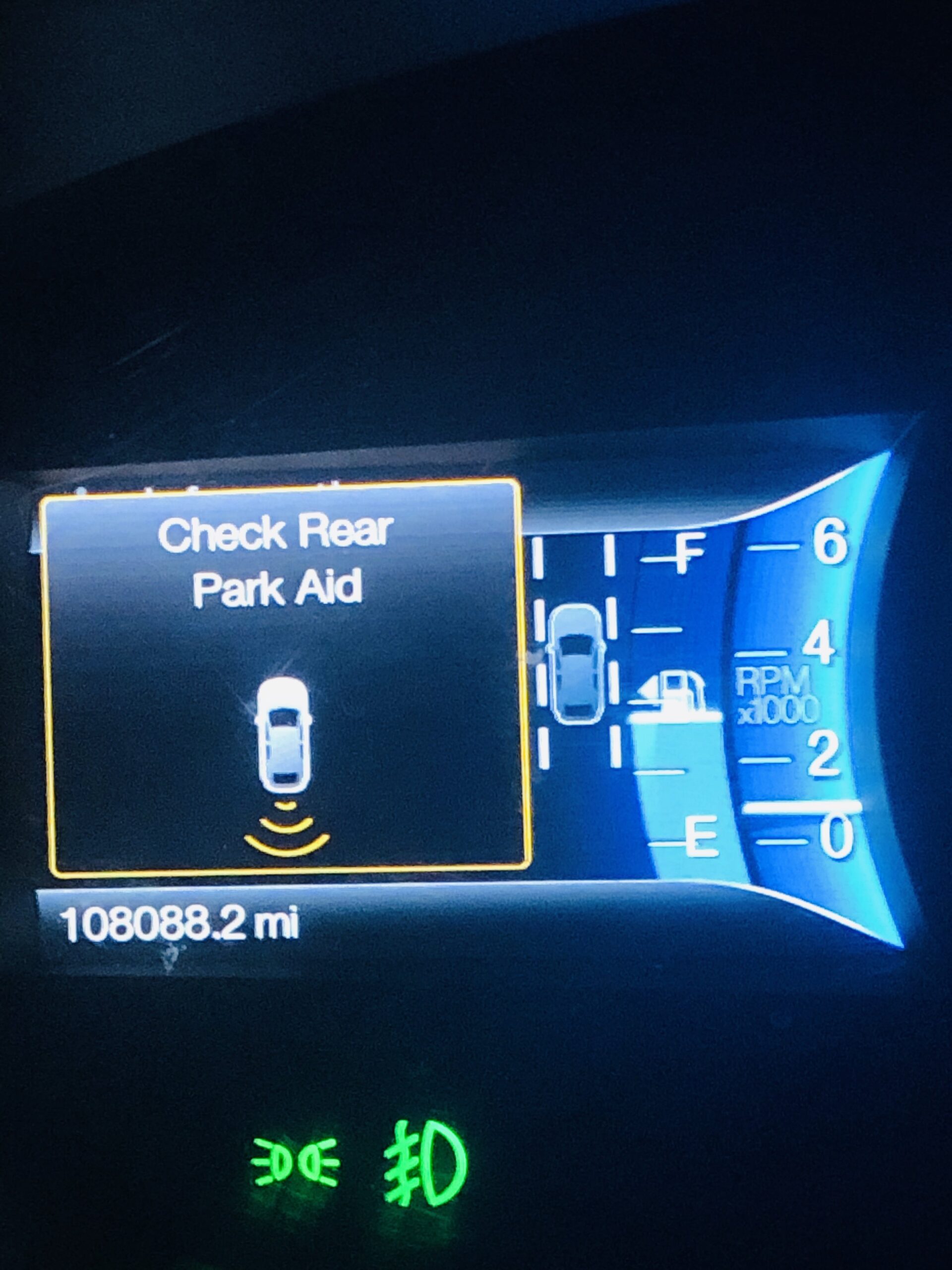If you own a Nissan Altima, you may have encountered a situation where your car suddenly displays a warning message saying “Engine malfunction, power reduced, service now“.
This means that your car’s computer has detected a problem with the engine that affects its performance and efficiency.
In this article, we will explain what causes this issue, how to diagnose it, and how to fix it.
We will also give you some tips on how to prevent it from happening again.
By the end of this article, you will have a better understanding of what “Engine malfunction, power reduced, service now” means and how to deal with it.
What does engine malfunction reduce power mean On Nissan Altima?
“Engine malfunction, reduced power” is a warning message that indicates there is a problem with the engine in your Nissan Altima, and the power output may be reduced to prevent further damage.
This warning could be triggered by various issues, and it’s important to address it promptly to avoid potential damage to the vehicle.
Common reasons for this warning message may include:
- Faulty sensors: Issues with sensors, such as the throttle position sensor, mass airflow sensor, or oxygen sensors, can cause the engine control module (ECM) to limit power.
- Ignition system problems: Malfunctions in the ignition system, such as faulty spark plugs, ignition coils, or the ignition control module, can lead to reduced engine power.
- Fuel system issues: Problems with the fuel injectors, fuel pump, or fuel pressure regulator can affect the engine’s performance and trigger the warning.
- Air intake issues: Blockages or restrictions in the air intake system, including the air filter, can impact engine performance.
- Exhaust system problems: A malfunctioning catalytic converter or exhaust system can lead to reduced power.
- Electronic control module (ECM) issues: Problems with the engine control module, which manages various aspects of engine performance, can result in reduced power.
How do you fix the engine power reduced On the Nissan Altima?
Fixing the “Engine Power Reduced” issue on a Nissan Altima involves identifying and addressing the specific problem causing the power reduction. Here are general steps you can take to troubleshoot and potentially fix the issue:
Check for Warning Codes:
- Use an OBD-II scanner to retrieve any diagnostic trouble codes (DTCs) stored in the vehicle’s computer system.
- These codes can provide valuable information about the specific component or system that is causing the power reduction.
Inspect Sensors:
- Check the condition of critical sensors such as the throttle position sensor (TPS), mass airflow sensor (MAF), and oxygen sensors.
- Replace any faulty sensors that may be affecting engine performance.
Ignition System Check:
- Inspect the spark plugs, ignition coils, and ignition control module for wear or damage.
- Replace any faulty components to ensure proper ignition.
Fuel System Inspection:
- Check the fuel injectors, fuel pump, and fuel pressure regulator for proper functioning.
- Address any issues found in the fuel system.
Air Intake System:
- Inspect the air filter for blockages or excessive dirt.
- Ensure the air intake system is free from restrictions and leaks.
Exhaust System Check:
- Inspect the catalytic converter and exhaust system for damage or blockages.
- Address any issues with the exhaust system.
ECM and Software Updates:
- If the engine control module (ECM) is suspected to be the issue, consider updating the software or replacing the ECM if necessary.
Throttle Body Cleaning:
- Clean the throttle body to remove any carbon deposits that may affect its operation.
Check for Vacuum Leaks:
- Inspect the vacuum lines for leaks, as they can impact engine performance.
- Repair or replace any damaged or leaking vacuum lines.
Why does my Nissan Altima say engine malfunction?
There are many possible reasons why your Nissan Altima says engine malfunction. Some of the common causes are:
- A weak battery that affects the sensors and the engine control unit (ECU).
- A sensor malfunction prevents the ECU from regulating the engine properly.
- A low fuel pressure reduces the amount of fuel delivered to the engine.
- A clogged air filter or a faulty mass airflow sensor affects the air-fuel mixture.
To diagnose and repair the engine malfunction, you should check the sensors, the battery, the fuel system, and the air filter for any signs of damage or wear.
You should also use a diagnostic tool to scan the trouble codes and pinpoint the exact problem.
If you are not sure how to do this, you should take your car to a professional mechanic for service as soon as possible.
Driving with an engine malfunction can damage your engine and compromise your safety.
Can I drive with reduced engine power?

Driving with reduced engine power is possible, but not recommended.
Reduced engine power means that your car’s performance has been limited due to a system failure or an underlying problem.
This can affect your car’s efficiency, safety, and reliability.
Depending on the cause of the reduced engine power, you may experience loss of acceleration, rough idling, stalling, or check engine light.
What sensor causes reduced engine power?
Several sensors can cause reduced engine power in your car, such as:
- Oxygen sensor: This sensor measures the amount of oxygen in the exhaust gas and sends a signal to the engine control unit (ECU) to adjust the air-fuel ratio. If the oxygen sensor is faulty, it can send incorrect signals and cause the ECU to reduce the engine power.
- Mass airflow sensor: This sensor measures the amount of air entering the engine and sends a signal to the ECU to adjust the fuel injection. If the mass airflow sensor is dirty or damaged, it can send inaccurate signals and cause the ECU to reduce the engine power.
- Throttle position sensor: This sensor monitors the position of the throttle and sends a signal to the ECU to control the engine speed. If the throttle position sensor is malfunctioning, it can send erratic signals and cause the ECU to reduce the engine power.
To fix the reduced engine power, you should check these sensors for any signs of damage or wear and replace them if necessary. You should also use a diagnostic tool to scan the trouble codes and pinpoint the exact problem. If you are not sure how to do this, you should take your car to a professional mechanic for service as soon as possible. Driving with reduced engine power can damage your engine and compromise your safety.
Also Read: Flashing Check Engine Light Ford F150
Can bad spark plugs cause reduced engine power On the Nissan Altima?
Bad spark plugs can cause reduced engine power in Nissan Altima, as well as other symptoms such as poor acceleration, rough idle, engine misfires, poor fuel economy, and check engine light. Bad spark plugs can affect the combustion process and the performance of the engine. If the spark plugs are in really bad condition, the engine may not start at all.
To diagnose bad spark plugs, you can use an OBDII scanner to check for any trouble codes related to the ignition system. You can also inspect the spark plugs visually for signs of wear, damage, or fouling. If the spark plugs are worn out, damaged, or dirty, you should replace them with new ones that match the specifications of your Nissan Altima.
Can an oil change fix the reduced engine power On the Nissan Altima?
An oil change is unlikely to fix reduced engine power on a Nissan Altima. There are many possible causes of this issue, such as faulty sensors, low fuel pressure, or a clogged air filter. An oil change may help with some of these problems, but it is not a guaranteed solution. The best way to diagnose and repair reduced engine power is to use a code scanner to check for any trouble codes stored in the vehicle’s computer system. This will help narrow down the source of the problem and guide you to the appropriate repair steps. Alternatively, you can take your Nissan Altima to a professional mechanic who can perform a thorough inspection and fix the issue for you.
What are some other symptoms of reduced engine power?
Some other symptoms of reduced engine power that you may experience are:
- A warning light or message on your instrument cluster indicating that the engine power is reduced or that the vehicle is in limp mode.
- Difficulty accelerating or reaching high speeds, as the engine may not respond to the throttle input or may limit the fuel supply.
- Rough shifting or stalling, especially if the transmission is affected by the reduced engine power mode.
- Engine misfires or hesitations may indicate a problem with the ignition system, the fuel system, or the air intake system.
- Poor fuel economy or excessive emissions, as the engine may not run efficiently or may burn more fuel than necessary.
Can a dirty air filter cause reduced engine power?
Yes, a dirty air filter can cause reduced engine power. A dirty air filter restricts the amount of air that can flow into the engine, which will cause a loss of power. It is recommended that you change your air filter after your vehicle’s service schedule.
Conclusion
“Engine malfunction, power reduced, service now” is a warning message that indicates a problem with your Nissan Altima’s engine.
It can be caused by various factors, such as a weak battery, a sensor malfunction, a low fuel pressure, or a clogged air filter.
To fix this issue, you should check these components for any signs of damage or wear and replace them if necessary.
You should also use a diagnostic tool to scan the trouble codes and pinpoint the exact problem.
If you are not sure how to do this, you should take your car to a professional mechanic for service as soon as possible.
Driving with reduced engine power can damage your engine and compromise your safety.
We hope this article has helped you understand what “Engine malfunction, power reduced, service now” means and how to deal with it.




